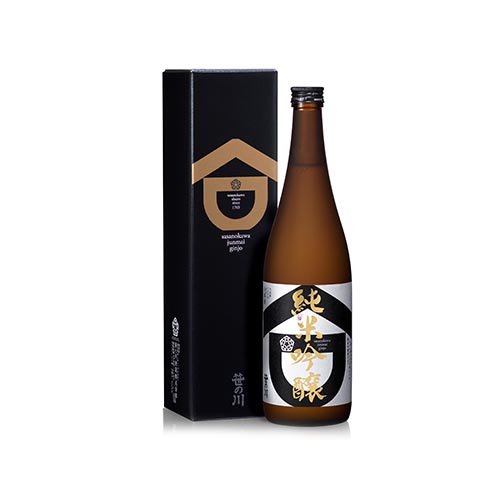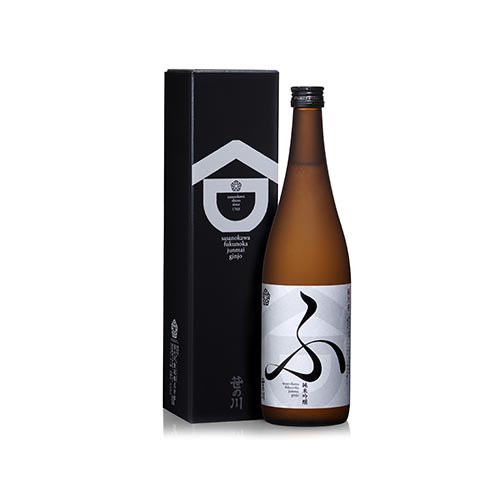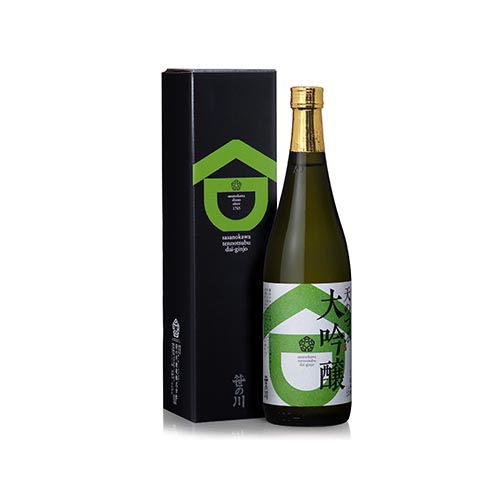Sake, is Japanese rice wine, is an alcoholic beverage made by fermenting rice that has been polished to remove the bran. … Like other rice wines, when sake is brewed, these conversions occur simultaneously.
There are some health benefits to drinking Japanese sake in moderation. Sake reduces the risk of having cancer, helps prevent osteoporosis and diabetes, can help to reduce high blood pressure, and even makes your skin clearer because it reduces the production of melanin so sunspots become less visible
Styles of sake produced with standard quality sake rice and only the permitted ingredients: rice, water, koji, yeast and alcohol.
Polishing Ratio:
Junmai | not specified |
Tokubetsu Junmai | 60% or less and or brewed with a special ingredient, technique, etc. |
Junmai Ginjo | 60% or less |
Junmai Daiginjo | 50% or less |
Junmai Ginjo is Sake made with rice polished down to 60% of the grain remaining. It is made in a very labor intensive way, fermented at colder temperatures for a longer period of time. Junmai Ginjō is produced from purely rice, water, yeast. This Sake has a beautiful silvery colour with a fresh aroma with hints of Jasmine rice and almond. A delicious sake with a creamy, sweet front palate, lightly tart side palate and a long dry finish. Delicate and refined.
- ABV: 15%
- Volume: 720mL
- Sake Type: Jyunmai Ginjo
- Sake Rice: Miyamanishiki, Koshihikari
- Rice Milling Rate: 60%
- Acidity: 1.5
- SMV ±0.0
Special brew using 100% highly-polished Fukunoka sake rice, which is fermented over a long period of time at a low temperature. You can enjoy the fragrance and rich savor special to Sasanokawa pure rice sake, as well as its lightness and smoothness. Elegance is its strongest sales feature.
This sake carries great rich flavor of Junmai, as well as clean, refreshing aftertaste of Ginjo. Banana like fruity aroma and clean after taste are loved and enjoyed by everybody.
- ABV: 15%
- Volume: 720mL
- Sake Type: Jyunmai Ginjo
- Sake Rice: Fukunoka
- Rice Milling Rate: 60%
- Acidity: 1.3
- SMV +3.4
Blessed by its clean ultrapure water from melting snow due to the unique region climate in the northeast part of Japan, makes it an ideal environment for sake production. Based in Koriyama, Fukushi, one of the oldest sake breweries in northeast Japan. Sasanokawa Shuzo began in 1765 with a history of more than 250 years, mostly active in Japanese sake and shochu field. Asaka Distillery was the smallest distillery in Japan and their first distilling still has the capacity at 2000L and the second has only 1000L.
- ABV: 15%
- Volume: 750mL
- Sake Type: Dai-Ginjo.
- Sake Rice: Tennotsubu
- It has a rich flavour and a solid taste but finished in a refreshing sake.
- Rice Milling Rate: 50%
- Acidity: 1.3
- SMV: +3



